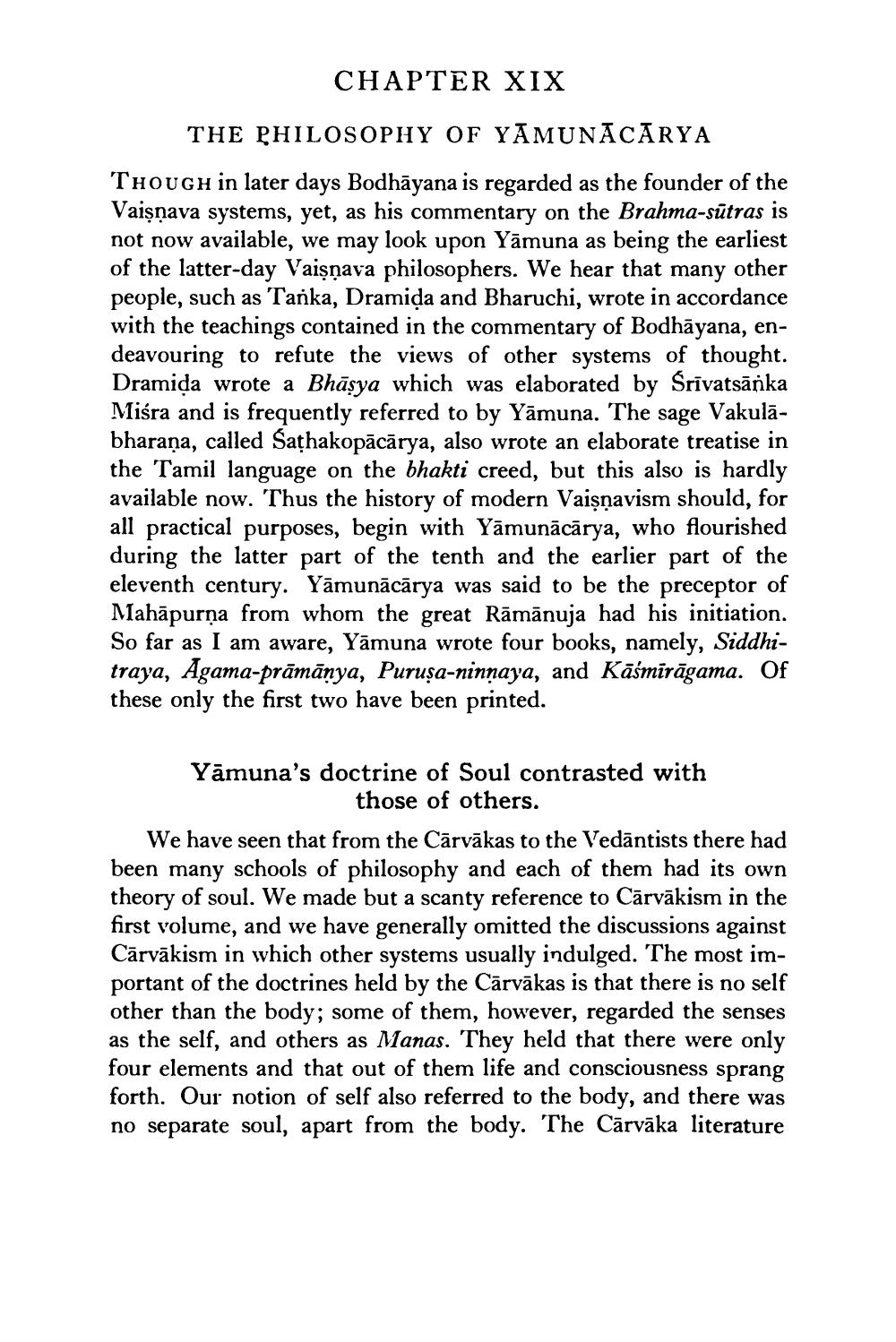________________
CHAPTER XIX
THE PHILOSOPHY OF YAMUNACARYA
THOUGH in later days Bodhāyana is regarded as the founder of the Vaiṣṇava systems, yet, as his commentary on the Brahma-sutras is not now available, we may look upon Yamuna as being the earliest of the latter-day Vaisnava philosophers. We hear that many other people, such as Tanka, Dramida and Bharuchi, wrote in accordance with the teachings contained in the commentary of Bodhāyana, endeavouring to refute the views of other systems of thought. Dramiḍa wrote a Bhāṣya which was elaborated by Śrīvatsānka Miśra and is frequently referred to by Yamuna. The sage Vakulabharana, called Saṭhakopācārya, also wrote an elaborate treatise in the Tamil language on the bhakti creed, but this also is hardly available now. Thus the history of modern Vaisnavism should, for all practical purposes, begin with Yamunācārya, who flourished during the latter part of the tenth and the earlier part of the eleventh century. Yāmunācārya was said to be the preceptor of Mahāpurṇa from whom the great Rāmānuja had his initiation. So far as I am aware, Yamuna wrote four books, namely, Siddhitraya, Agama-prāmāṇya, Puruṣa-ninṇaya, and Kāśmīrāgama. Of these only the first two have been printed.
Yamuna's doctrine of Soul contrasted with those of others.
We have seen that from the Cārvākas to the Vedantists there had been many schools of philosophy and each of them had its own theory of soul. We made but a scanty reference to Cārvākism in the first volume, and we have generally omitted the discussions against Cārvākism in which other systems usually indulged. The most important of the doctrines held by the Cārvākas is that there is no self other than the body; some of them, however, regarded the senses as the self, and others as Manas. They held that there were only four elements and that out of them life and consciousness sprang forth. Our notion of self also referred to the body, and there was no separate soul, apart from the body. The Cārvāka literature




